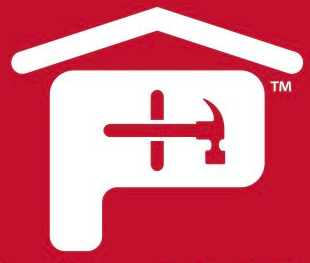

Suicide Hits Record Levels in Roofing, Building Industries
Click here to read Part 1 of this article.
A Personal Story
Rick Gelatka remembers his son Ryan with loving memories of tenacity, independence and intelligence. In his teens, Ryan scored among the top 1% on his SATs, loved sports like hunting and fishing and hopped a train for a solo cross-country trip (without his parents’ permission).
At the same time, Ryan struggled with depression and alcoholism. The Gelatkas worked tirelessly to help him, but nothing seemed to stick. Looking back to the weeks before his suicide at age 41, Ryan may have been dropping hints about his faltering mental health, Gelatka said.
“We didn't see how low he was even though he told me, ‘I feel very empty, I feel so empty,’” Gelatka said. “It's what happens when you become an alcoholic and you start feeling depression — that you've got no place to go, nothing is good. In his life, he continued having hidden depression that we didn't see.”
Gelatka wants others to learn from his experiences and hopes the construction community will circle the wagons around their own to provide help.
“They may not accept the help, but at least they can hear you say, ‘Your life will be in turmoil if you don’t do something,’” Gelatka said. “Hopefully you can reach out instead of just ignoring the problem or firing the person.”
Among those trying to help is Stuart Binstock, a founding member of the Construction Industry Alliance for Suicide Prevention (CIASP) task force. Binstock said safety conversations need to incorporate mental health.
“People in our industry talk about safety and health, but they really only talk about safety. And when they talk about health, they never talk about mental health,” Binstock, CEO of the construction accounting firm Construction Financial Management Association (CFMA), told Equipment World magazine. “It’s too difficult. We understand so little about mental health, and particularly the layperson; it’s just outside of the comfort zone for most people to talk about.”
Some of the most common signs of mental health distress may not be recognizable as problems.
BOLO (Be on the Lookout)
According to the National Institute of Mental Health (NIMH), people who are considering suicide exhibit some common warning signs:
- Talking about wanting to die or being a burden on others
- Feeling excessive guilt or shame
- Eating or sleeping more
- Appearing very anxious, sad, agitated or angry
- Expressing that they have no reason to live
- Withdrawing from friends and social life
- Using drugs or alcohol excessively
- Giving away personal possessions
- Taking dangerous risks
- Researching plans to die
At the same time, some warning signs are specific to the construction industry, Binstock said:
- Decreased productivity
- Increased conflicts at work
- Increased near-accidents and injuries
- Increased tardiness
- Decreased problem-solving abilities
No matter the signs and signals regarding suicide, coworkers, family, friends and acquaintances must act fast.
Preventing Suicide
Since public health and mental wellness agencies sounded the alarm on contractor suicides, a growing number of building-industry organizations and associations have been talking about prevention. But that’s not enough, said Sally Spencer-Thomas, with the National Action Alliance for Suicide Prevention.
“The culture of risk-taking, stoicism and self-reliance in the construction industry certainly makes for courageous and hearty workers, but it also increases risk for suicide in that this occupational group is least likely to reach out when there’s a problem,” she said to the American Society of Safety Professionals.
So many construction workers need help but won’t ask, she adds. It’s up to the people around them to lend a listening ear.
“We don’t know that this is happening with a person unless we have conversations about it. There’s no X-ray, there’s no diagnostic test that tells us, the only way in is through conversation,” she said. “For construction workers to feel they can open up about it, we have to have a certain level of trust.”
During conversations, company leaders and coworkers should keep in mind to:
- Talk less and listen more
When someone is hurting emotionally, they may need to vent their frustrations and feelings. Being a good listener doesn’t mean fixing problems. Instead, it can mean helping people find their own solutions. - Ask direct questions
Suicide is not easy to bring up in a casual conversation, but raising the topic is an important way to show people you notice their pain and care. Approach conversations with compassion and empathy. - Provide resources
Qualified professionals can provide the support and treatment necessary for those in the construction industry experiencing a mental health crisis. If the need is immediate, call 911.
Other groups as well have resources at the ready:
- National Suicide Prevention Lifeline
A nationwide free and confidential 24-hour hotline for anyone in distress. Call 1-800-273-8255 for help. - LivingWorks
Hosts workshops that teach skills for suicide intervention and prevention. Currently working in coordination with CIASP to offer free suicide-prevention training. - Working Minds
Offers guidance and training for construction companies and professional associations regarding suicide prevention and mental health. - QPR Institute
Provides training in suicide prevention for individuals and large organizations.
If you or someone you know needs help, please don’t wait — reach out to one of the resources mentioned above.









 Gear!
Gear! PRO LOGIN
PRO LOGIN